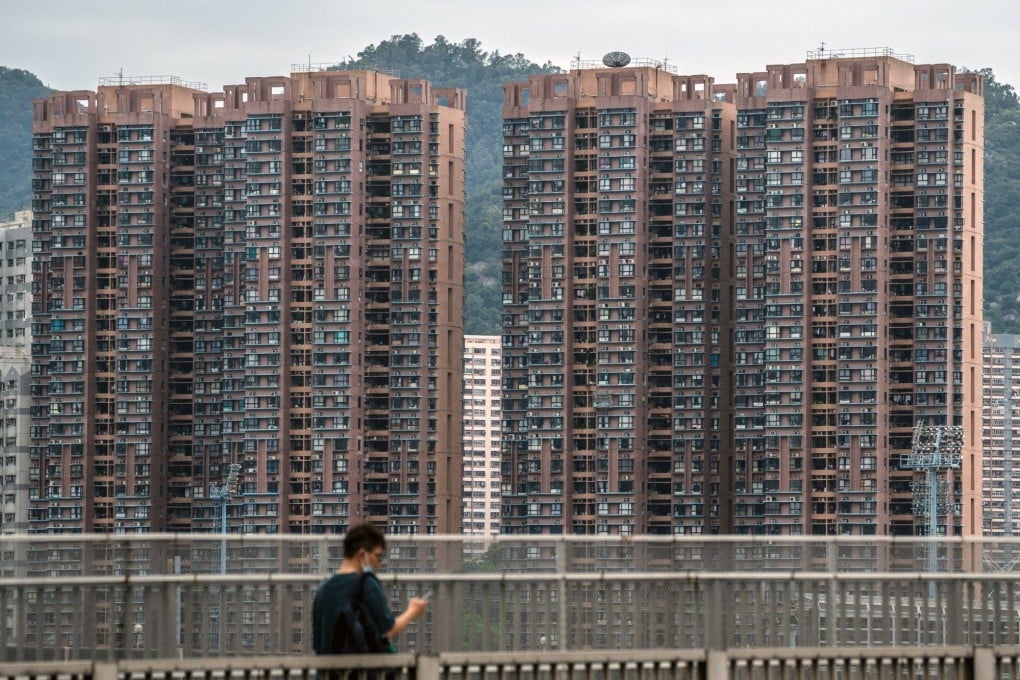Advertisement
Hong Kong home prices slump to nearly five-year low after biggest monthly decline of year, with more drops to come
- Prices of lived-in homes in Hong Kong fell 2.4 per cent on a monthly basis in October, according to government data released on Monday
- The government’s price index stands just above where it was in November 2017, as analysts say prices will continue their slide into next year
Reading Time:2 minutes
Why you can trust SCMP
7

Prices of lived-in homes in Hong Kong had their worst month in an already bad year in October, slumping to a nearly five-year low as worsening global and local economic conditions continued to weaken market sentiment.
A home price index released on Monday by the Rating and Valuation Department fell 2.4 per cent on a monthly basis to 352.4, the lowest level since November 2017 when it was at 347.2. So far this year, the gauge has lost 10.5 per cent.
“It’s the biggest decline this year on a monthly basis, and a similar price drop is expected to continue in the upcoming two to three months,” said Martin Wong, director and head of research and consultancy for Greater China at Knight Frank. “The weak sentiment is caused by quickly deteriorating local and global economic prospects.”
Advertisement
The latest in a series of interest rate increases, in early November, contributed to the drop, although its impact had already been expected by the market, Wong added.

Should the forecast hold for the rest of the year, the price index for Hong Kong’s secondary property market may fall to its lowest level since May 2017, when it stood at 333.6.
Advertisement
Advertisement
Select Voice
Select Speed
1.00x